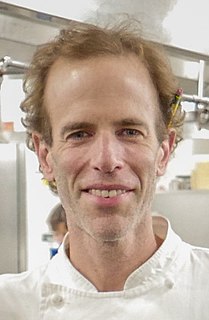A Quote by Martin Rees
Some global hazards are insidious. They stem from pressure on energy supplies, food, water and other natural resources. And they will be aggravated as the population rises to a projected nine billion by mid-century, and by the effects of climate change. An 'ecological shock' could irreversibly degrade our environment.
Related Quotes
City farming is not only possible, it is the very definition of the kind of meaningful, sustainable innovation we will need to meet the grand challenges of the 21st century: climate change; population growth; ageing population; urbanization; rising demand for energy, food and water; poverty; and access to healthcare.
The cost of our success is the exhaustion of natural resources, leading to energy crises, climate change, pollution, and the destruction of our habitat. If you exhaust natural resources, there will be nothing left for your children. If we continue in the same direction, humankind is headed for some frightful ordeals, if not extinction.
Egypt's priorities in fact are all related to the environment: food, water, health, energy, employment and education. Egypt is facing some very serious environmental challenges. The country has limited natural resources and has to decide how to manage these to meet the needs of a growing population.
Everything we think about regarding sustainability - from energy to agriculture to manufacturing to population - has a water footprint. Almost all of the water on Earth is salt water, and the remaining freshwater supplies are split between agricultural use and human use - as well as maintaining the existing natural environment.
We're facing growing climate change, more floods, more droughts, more crisis on a planetary level, and the systems we put in place in the twentieth century are just not going to work. We've run out of stuff. Our big problems are going to be energy supplies and food supplies. This is not a right-left issue.
We're facing growing climate change, more floods, more droughts, more crisis on a planetary level, and the systems we put in place in the twentieth century are just not going to work. We've run out of stuff. Our big problems are going to be energy supplies and food supplies. This is not a right-left issue. It's a people issue, and it cuts across all our categories.
With the growth of the world population, the global climate change and the need for a greater healthy environment, access to water resources has become a crucial condition for the realization of an equitable international order, where the needs of the peoples are effectively addressed. In this regard, the need for international cooperation, including in joint effort with relevant non-state actors, is paramount to ensure water is made available to all without discrimination. Water is a human right, an enabling right, not a mere commodity.



































